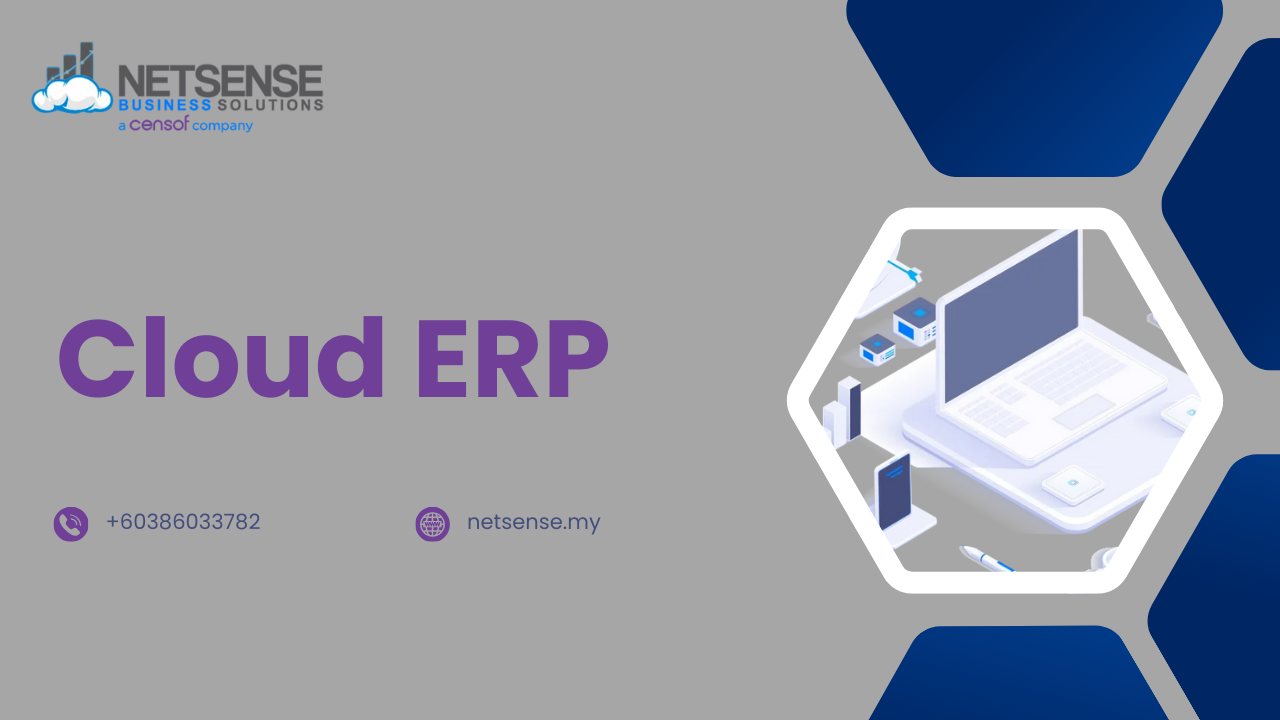One of the most important decisions that a Malaysian business must face today with regards to Enterprise Resource Planning (ERP) systems, is whether to invest in Cloud ERP or On-Premise ERP.
With 2025 around the corner and advancements in digital transformation ramping up, SMEs and large enterprises alike are searching for solutions which balance cost, scalability, flexibility, and security.
In this article we unpack the differences between Cloud ERP and On-Premise ERP, and discuss their advantages and disadvantages to help guide you to the right ERP system for your business into 2025.
What is Cloud ERP?
In contrast to an on-premise ERP solution that requires the expense of hardware, cloud ERP is a cloud-based-based solution that is hosted by the vendor on their servers and accomplished through an internet connection.
Instead of buying hardware, businesses in Malaysia are subscribing to a cloud ERP system and paying for the service on a monthly or yearly subscription bases.
- Availability: Employees can log in anytime, anywhere, a very useful feature of cloud ERP for remote working teams.
- Scalability: Cloud ERP can easily be scaled up when a company grows.
- Less upfront cost: There is not a big financial commitment for servers.
- Automatic updates: The user is always using the most current software version.
What is On-Premise ERP?
On-Premise ERP is placed directly onto your corporation’s own servers and is run by your organization’s own IT. This is the most typical and historical deployment configuration, primarily for larger companies.
- Control: You control your own data, server infrastructure, and upgrade plan.
- Customization: You can customize cloud-based ERP systems for your organization’s unique processes.
- Security: Data, particularly for regulated industries, is usually worth local storage for compliance reasons.
Cloud ERP vs On-Premise ERP: A Detailed Comparison
| Feature | Cloud ERP | On-Premise ERP |
| Cost | Lower upfront, subscription-based | High upfront, ongoing maintenance costs |
| Scalability | Highly scalable | Limited, requires extra investment |
| Accessibility | Remote and mobile access | Office-based access unless customised |
| Updates | Automatic, managed by vendor | Manual, requires IT team |
| Implementation time | Faster deployment | Longer due to hardware setup |
| Data control | Vendor-managed | Business-controlled |
Why Cloud ERP is Gaining Popularity in Malaysia?
Recent ERP market reports indicate that more than 70% of companies in Southeast Asia are selecting cloud-based ERP solutions compared to on-premise solutions.
In Malaysia, for example, small and medium-sized enterprises prefer Cloud ERP for the following reasons:
- Lower upfront cost is ideal for growing companies.
- Remote accessibility supports hybrid work models.
- Faster implementation means businesses can go live in weeks instead of months.
- Compliance-ready cloud ERP vendors ensure data security and GDPR/PDPA compliance.
When On-Premise ERP Still Makes Sense
While Cloud ERP is the future, some Malaysian businesses may still benefit from On-Premise ERP:
- Companies with strict data regulations (e.g., government contractors, banks).
- Businesses with a dedicated IT team that can manage and maintain the system.
- Organizations that require deep ERP customization beyond standard modules.
So, Which ERP is Best for Your Business in 2025?
If your business is an SME in Malaysia looking for affordability, flexibility, and quick deployment, Cloud ERP is your best bet.
If your business is a large enterprise with highly customized processes and strong IT infrastructure, On-Premise ERP may still be relevant.
However, the majority of companies in Malaysia are now moving towards cloud-based ERP systems because of the lower cost of ownership, scalability, and future-ready features.
Final Thoughts
When deciding Cloud ERP vs On-Premise ERP, regardless of whether you’re a small, medium, or large enterprise in 2025, you need to consider your size, budget, and growth plan.
With the rise in digital transformation in Malaysia, Cloud ERP solutions are available for SMEs and enterprises that don’t want to fall behind.
If you are thinking of implementing ERP in Malaysia as a business, you may consider your business needs, compliance requirements and budget. The right ERP partner can help guide you towards the best solution for your future growth.
